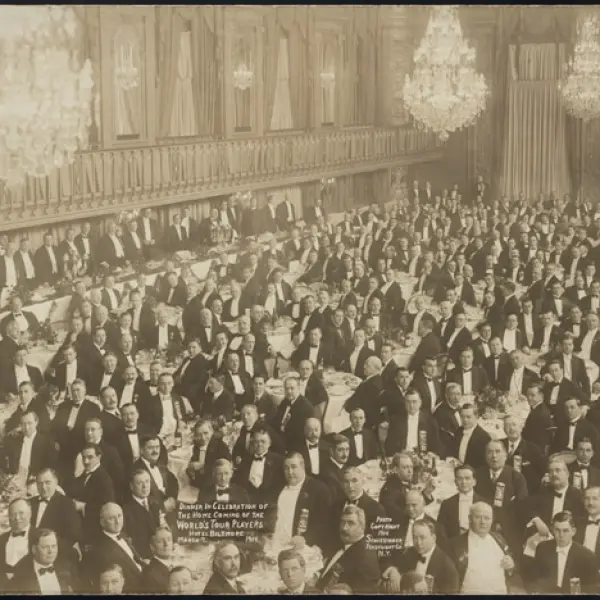Abraham Lincoln, a portrait by Mathew Brady
Abraham Lincoln, born on February 12, 1809, in a log cabin in Hardin County (now LaRue County), Kentucky, is widely regarded as one of the greatest presidents in American history. Rising from humble beginnings, Lincoln went on to become the 16th President of the United States, leading the nation through its Civil War and working to end slavery.
Lincoln's early life was marked by hardship. His family was poor, and he received little formal education, but he was a voracious reader and self-taught. He worked various jobs, including as a farm laborer, storekeeper, and rail-splitter, before studying law and becoming a successful lawyer in Springfield, Illinois.
In 1834, Lincoln entered politics, serving in the Illinois State Legislature and the U.S. House of Representatives. However, it was in the 1850s, during the national debate over slavery, that he emerged as a leading figure. His debates with Stephen A. Douglas during the Illinois Senate race of 1858, particularly the Lincoln-Douglas debates, brought him national attention. Though he lost the Senate seat, his views on the moral and political issues surrounding slavery gained him a wide following, particularly in the newly-formed Republican Party, which was dedicated to opposing the expansion of slavery into the Western territories.
In 1860, Lincoln was elected president, and his election was a major catalyst for the secession of Southern states, as they feared his policies would threaten the institution of slavery. Despite his moderate stance on slavery (he initially only sought to prevent its expansion), the nation plunged into civil war shortly after he took office in 1861.
Throughout the Civil War, Lincoln faced immense challenges, including leading a divided nation, managing military strategies, and keeping the Union together. His leadership was characterized by a deep commitment to preserving the Union and a growing determination to abolish slavery. In 1863, Lincoln issued the Emancipation Proclamation, which declared all slaves in Confederate states to be free. This was a critical step in changing the nature of the war and the future of the nation.
In addition to his wartime leadership, Lincoln is remembered for his speeches, such as the Gettysburg Address, delivered in 1863, which eloquently articulated the principles of human equality and the necessity of preserving the Union.
Lincoln was re-elected in 1864, but he did not live to see the end of the war. On April 14, 1865, just days after General Robert E. Lee's surrender at Appomattox Court House, Lincoln was assassinated by John Wilkes Booth, a Confederate sympathizer, while attending a play at Ford's Theatre in Washington, D.C. He died the following day, becoming the first U.S. president to be assassinated.
Lincoln's legacy is profound. He is celebrated for his leadership during one of the most challenging periods in U.S. history, for his role in ending slavery, and for his vision of a united country. His speeches, writings, and actions continue to resonate in American culture and politics, and he remains a symbol of freedom, equality, and justice.
Lincoln's early life was marked by hardship. His family was poor, and he received little formal education, but he was a voracious reader and self-taught. He worked various jobs, including as a farm laborer, storekeeper, and rail-splitter, before studying law and becoming a successful lawyer in Springfield, Illinois.
In 1834, Lincoln entered politics, serving in the Illinois State Legislature and the U.S. House of Representatives. However, it was in the 1850s, during the national debate over slavery, that he emerged as a leading figure. His debates with Stephen A. Douglas during the Illinois Senate race of 1858, particularly the Lincoln-Douglas debates, brought him national attention. Though he lost the Senate seat, his views on the moral and political issues surrounding slavery gained him a wide following, particularly in the newly-formed Republican Party, which was dedicated to opposing the expansion of slavery into the Western territories.
In 1860, Lincoln was elected president, and his election was a major catalyst for the secession of Southern states, as they feared his policies would threaten the institution of slavery. Despite his moderate stance on slavery (he initially only sought to prevent its expansion), the nation plunged into civil war shortly after he took office in 1861.
Throughout the Civil War, Lincoln faced immense challenges, including leading a divided nation, managing military strategies, and keeping the Union together. His leadership was characterized by a deep commitment to preserving the Union and a growing determination to abolish slavery. In 1863, Lincoln issued the Emancipation Proclamation, which declared all slaves in Confederate states to be free. This was a critical step in changing the nature of the war and the future of the nation.
In addition to his wartime leadership, Lincoln is remembered for his speeches, such as the Gettysburg Address, delivered in 1863, which eloquently articulated the principles of human equality and the necessity of preserving the Union.
Lincoln was re-elected in 1864, but he did not live to see the end of the war. On April 14, 1865, just days after General Robert E. Lee's surrender at Appomattox Court House, Lincoln was assassinated by John Wilkes Booth, a Confederate sympathizer, while attending a play at Ford's Theatre in Washington, D.C. He died the following day, becoming the first U.S. president to be assassinated.
Lincoln's legacy is profound. He is celebrated for his leadership during one of the most challenging periods in U.S. history, for his role in ending slavery, and for his vision of a united country. His speeches, writings, and actions continue to resonate in American culture and politics, and he remains a symbol of freedom, equality, and justice.
Accesorios
Adulto
Ropa
Abrigo
Rostro
Ropa formal
Cabeza
Masculino
Hombre
Persona
Fotografía
Retrato
Traje
Atar
Envíado por OldPik el 7 de enero de 2024
Image

Debes iniciar sesión para comentar las fotos.
Iniciar sesión
Iniciar sesión














Sin comentarios aún, sé el primero en comentar...